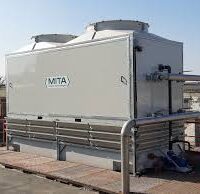Round Type Cooling Tower
With a design based on FRP (Fiber Reinforced Plastic), the Bottle Shape Cooling Tower offers exceptional resistance to corrosion and high durability. Its ability to handle extreme vibrations makes it ideal for industries requiring reliable, long-lasting cooling.
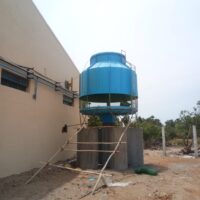
Cross Flow Cooling Tower
This design allows air to flow horizontally through the cooling tower, while water moves vertically downwards. This perpendicular interaction between air and water enhances heat exchange efficiency, making it suitable for larger cooling systems.
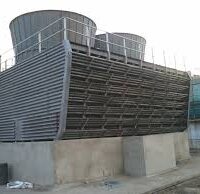
Wooden Cooling Tower
Specifically constructed to deal with water containing high dissolved solids (TDS), these towers spray hot water through nozzles, ensuring effective heat dissipation. They are well-suited for environments where water quality can be challenging.
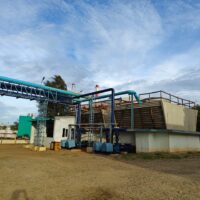
Evaporative Cooling Tower
By leveraging water evaporation, evaporative cooling towers provide an efficient solution for removing excess heat from industrial processes. These towers are ideal for power plants
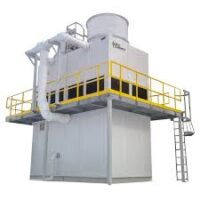
Dry Cooling Tower
In contrast to wet cooling towers, dry cooling towers use air instead of water to remove heat. This design is beneficial for areas with limited water resources and reduces water usage in cooling-intensive industries.
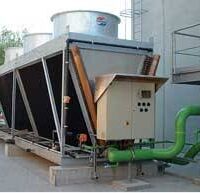
Natural Draft Cooling Tower
These towers rely on natural convection to cool water, eliminating the need for mechanical fans. The large, hyperbolic design encourages airflow, resulting in low-energy consumption
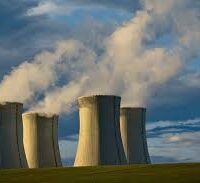
RCC Cooling Tower
RCC (Reinforced Cement Concrete) cooling towers are known for their large-scale, durable structures that dissipate heat effectively. Their robust design makes them a preferred choice for industries needing continuous and efficient cooling systems.
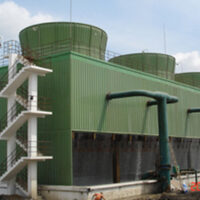
Square Type Cooling Tower
These cooling towers operate using induced draft counterflow, where a fan pushes air upward through the tower. This design improves heat exchange efficiency, making the Square Type ideal for large, industrial applications
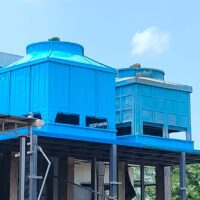
Closed Circuit Cooling Tower
This integrated system combines the functions of both a cooling tower and a heat exchanger. The process fluid moves through coils or heat exchangers inside the tower, allowing efficient cooling while reducing water consumption.
